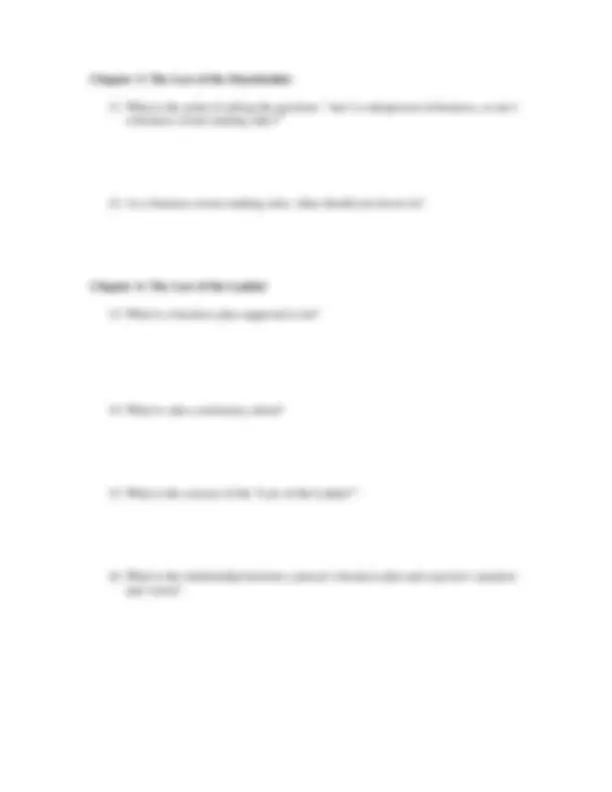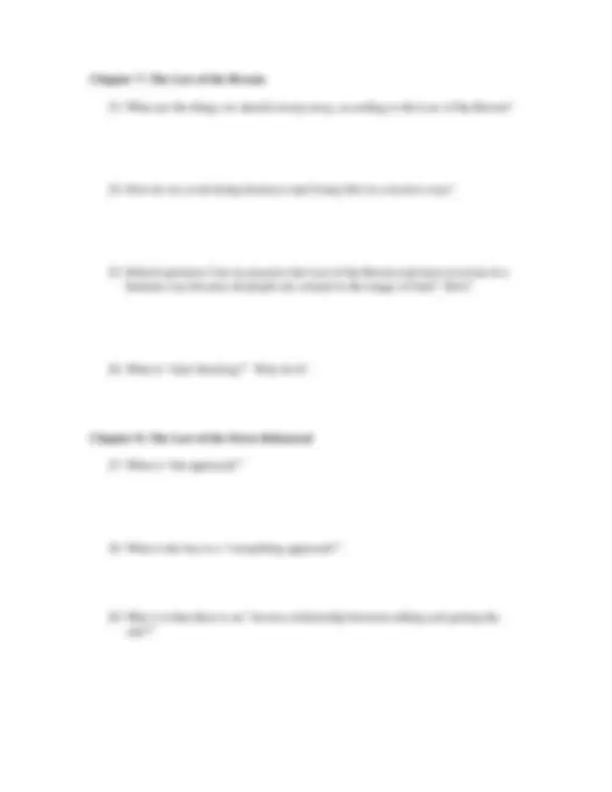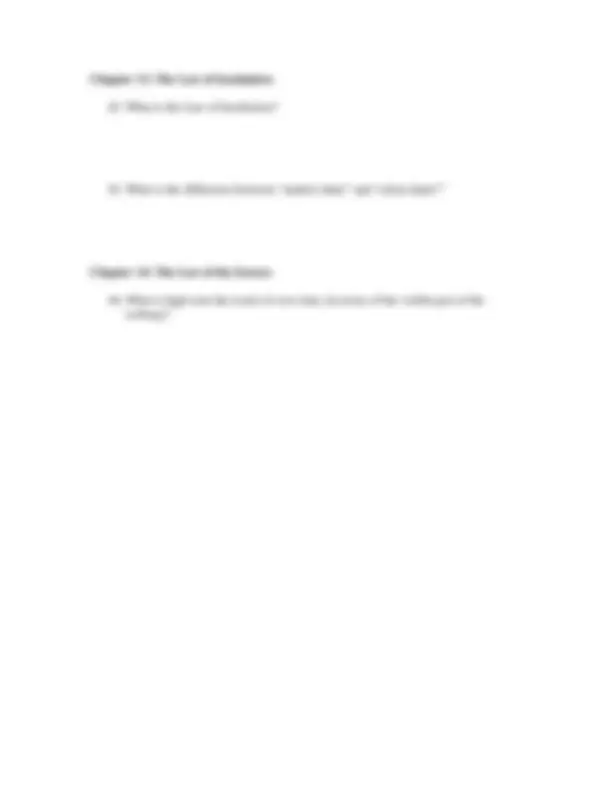Download Discussion Questions for High Trust Selling - Internship in Leadership | LDRS 399 and more Assignments School management&administration in PDF only on Docsity!
LDRS 399: (Oral) Discussion Questions for High Trust Selling
Introduction
- Comment on the meaning of the following sentences: a. “It’s one thing to be a trustworthy person in a sales job; it’s another to be a trustworthy salesperson with a reliable business.”
b. “And high trust happens by design, not by accident. It’s earned and preserved, but never finagled.”
Chapter 1: The Law of the Iceberg
- Comment on the following: a. “It’s vital if your aspiration is greater than merely making a living.”
b. “The Law of the Iceberg says that the truest measure of your success is invisible to your clients because the majority of real success occurs on the inside of a salesperson, not on the outside. Your fulfillment—not your finances—should dictate whether you are truly successful.”
- What is one your “inside?”
- How does what’s on your inside relate to your ability to establish trust?
- What is the greatest inhibitor of sales success?
- What is the difference between understanding how to be a successful salesperson and understanding why to be a successful salesperson? Which is important to know first? Why?
Chapter 2: The Law of the Summit
- What is the “right perception of failure?”
- What is the “summit of success” a product of?
- Comment on this sentence: “Reaching the summit of success in the sales profession is not so much what you receive from climbing as it is what you become by climbing.”
- Trust is based on _____________________, not flawlessness.
- Reflect on the following: a. What is your purpose?
b. What are your values?
c. What is your vision for your value areas?
d. What are your short-term goals for each value area?
Chapter 5: The Law of Leverage
- What produces the “leverage necessary to follow through on your aspirations” (your plan)?
- Who are the “right people” to share your aspirations with?
- What are the three types of leverage?
Chapter 6: The Law of the Hourglass
- What is your “hourly rate” and what is it good for?
- What is Paretto’s Rule and how might it apply to your life?
Chapter 7: The Law of the Broom
- What are the things we should sweep away, according to the Law of the Broom?
- How do we avoid doing business (and living life) in a reactive way?
- Ethical question: Can we practice the Law of the Broom and treat everyone in a humane way because all people are created in the image of God? How?
- What is “time blocking?” Why do it?
Chapter 8: The Law of the Dress Rehearsal
- What is “the approach?”
- What is the key to a “compelling approach?”
- Why is it that there is an “inverse relationship between talking and getting the sale?”
Chapter 11: The Law of Courtship
- How are dating relationships like sales relationships?
- What is it one must know about one’s clients?
- What is the relationship between tension, trust, resistance, and acceptance?
- Do people by thoughts or feelings? Where do feelings come from?
- How does one uncover the source of another person’s feelings?
Chapter 12: The Law of the Hook
- How is can it be that prospects can close their own sales?
Chapter 13: The Law of Incubation
- What is the Law of Incubation?
- What is the difference between “market share” and “client share?”
Chapter 14: The Law of the Encore
- What is high trust the result of over time (in terms of the visible part of the iceberg)?
















